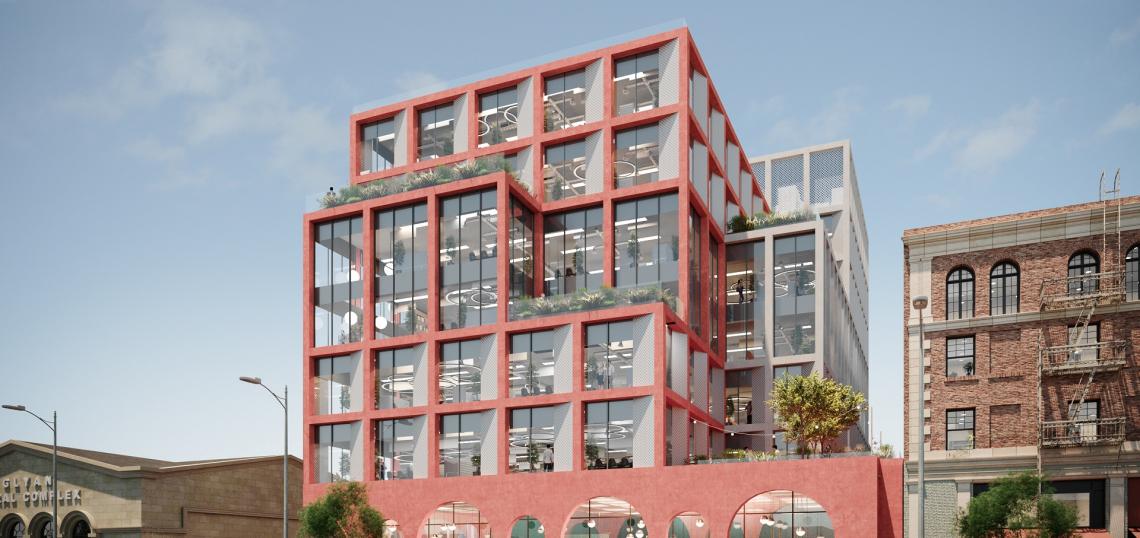Things to read from the past week:
Editorial: L.A. can begin to solve its affordable housing crisis in 2021 "Almost half of the new housing built in L.A. between 2012 to 2019 was located in lower-income communities, according to an analysis by a coalition of housing, social justice and environmental groups. But about 90% of the new homes built during that period were unaffordable to working-class Angelenos. No wonder so many renters and neighborhoods are concerned about gentrification and displacement. Much of the development is happening in poorer neighborhoods, but the homes are priced for wealthier households." (LA Times)
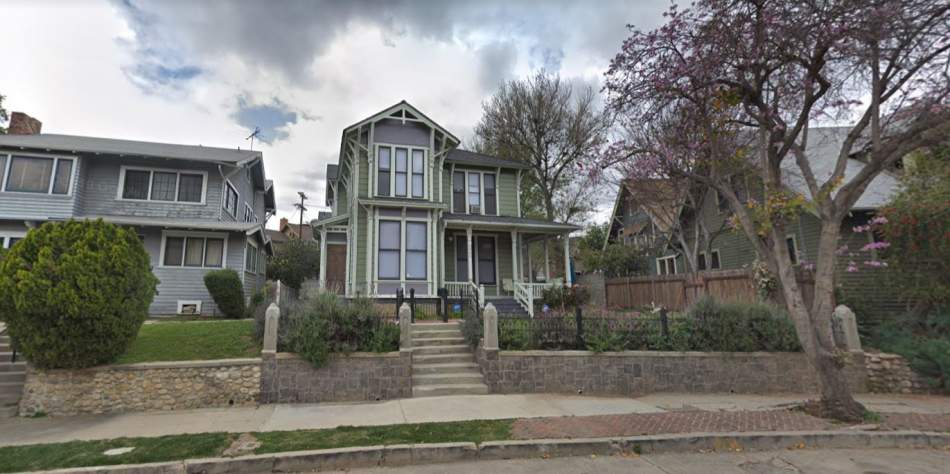
A Survivor! Research for a Mills Act application reveals that an 1880s house displaced from Bunker Hill is alive and well in Angelino Heights (Bunker Hill Los Angeles)
Coopers Look Beyond Film Industry for Hollywood Portfolio "The company has seven sites in active development and plans to do additional projects as well. The group aims to entitle three projects per year and start construction on three per year....One project the company is eyeing would have 200 residential units and ground-floor retail in mid-Hollywood. Unwin said the company is looking at adding 300 units across three projects in the L.A. area." (LA Business Journal)
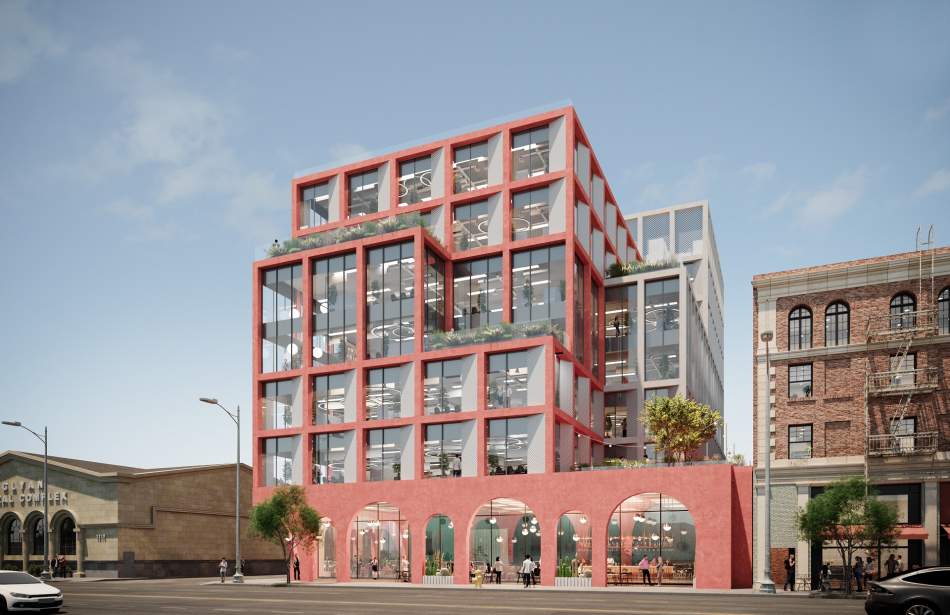 Rendering of an office building planned at 1235 N Vine Street by the Cooper familyHawkins\Brown Architects
Rendering of an office building planned at 1235 N Vine Street by the Cooper familyHawkins\Brown Architects
LA County Looking to Return Land to Family Descendants of Bruce's Beach "Nearly a century after the city of Manhattan Beach used a legal tool to take an area known as Bruce’s Beach away from Black property owners, Los Angeles County, which currently owns some of that land..." (NBC4)
First tunneling machine reaches future Wilshire/La Cienega subway station "Tunneling for the first four-mile section of the subway project is now two-thirds complete. More than 90 percent of the tunnels have been mined safely and Metro anticipates completing tunnel mining this summer. Excavation for all three subway station boxes beneath Wilshire Boulevard has been completed." (The Source)
Cramped Kitchens And Crowded Homes Are A Deadly Combo For LA's Fast Food Workers "Researchers say low wages make it difficult for fast food employees to make ends meet, and more than two-thirds of workers in L.A. live in a household where family members are enrolled in public assistance programs such as Medicaid or SNAP (formerly known as food stamps). They estimate the total cost of this aid at $1.2 billion in L.A. County." (LAist)
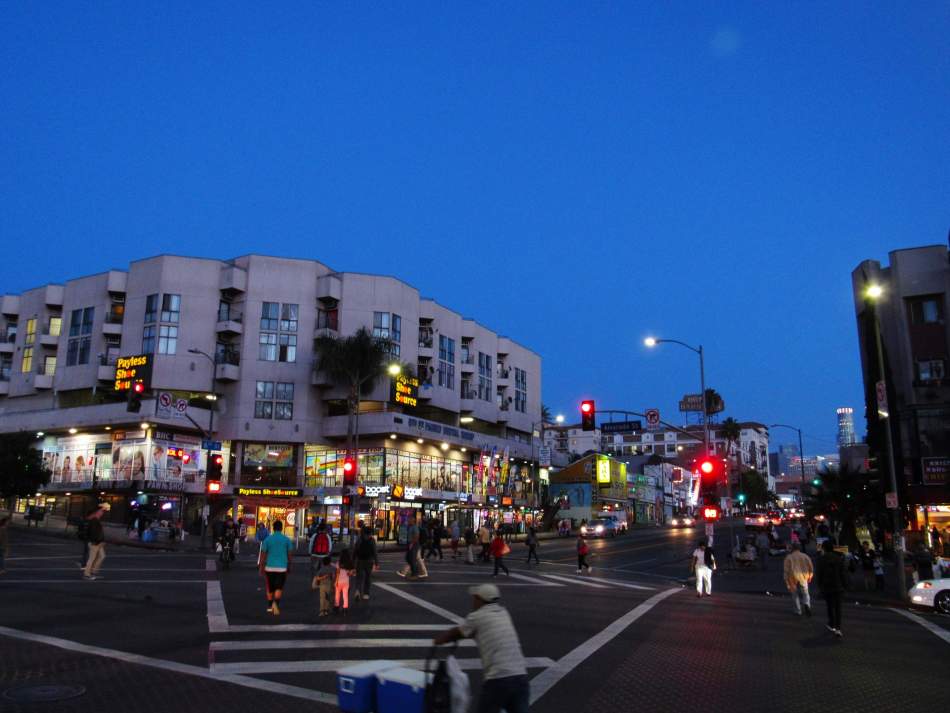 The intersection of 6th and Alvarado Streets in WestlakeWikimedia Commons
The intersection of 6th and Alvarado Streets in WestlakeWikimedia Commons
Why don’t Angelenos jaywalk? It isn’t because nobody walks in L.A. "In 1983 in Los Angeles, where mythology holds that nobody walks, police ticketed 40,747 jaywalkers. In the same year in New York, where everybody walks, the number was 517. In the preceding 20 years, Chicago police had handed out none." (LA Times)
What It Will Take to Close the Race Gap in Home Appraisals "Until recently, the leadership of the Appraisal Institute, an international professional association representing the real estate appraiser profession, was unwilling to acknowledge that this was even an issue. In 2019, when Congressman Al Green of Texas asked the leaders of several real estate professional organizations including the Appraisal Institute if they believed that 'invidious discrimination plays a role in the devaluation of property' in Black neighborhoods, none of them raised their hand." (CityLab)
L.A. is entitled to federal aid to put homeless people in hotels. It hasn’t asked for any "Local, state and federal officials say the city hasn’t requested reimbursement from the Federal Emergency Management Agency for portions of the estimated $59 million it has spent on Project Roomkey, which has been sheltering homeless people in hotel rooms since shortly after the pandemic began last year. The city has sharply scaled back the hotel program in recent months, leading advocates and lawyers for the homeless to say the Garcetti administration is showing a lack of political will to protect some of L.A.'s most vulnerable residents." (LA Times)
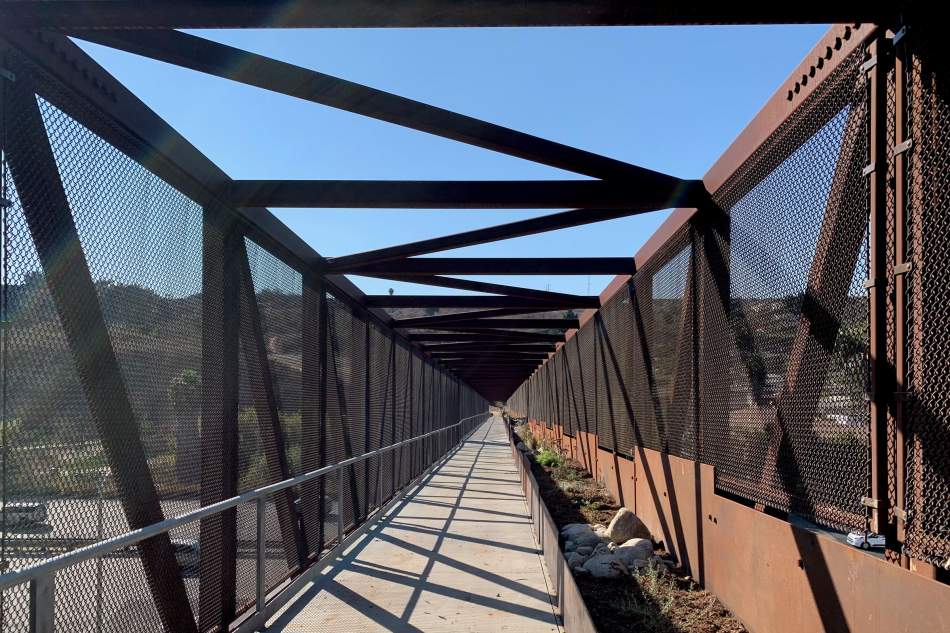 Pedestrian bridge across La Cienega Boulevard - part of the Park to Playa trailUrbanize Media
Pedestrian bridge across La Cienega Boulevard - part of the Park to Playa trailUrbanize Media
The Man Behind LA's Park To Playa Trail: "Make Parks Where People Are" A profile of David McNeill, the the executive director of the Baldwin Hills Conservancy, who worked for two decades to make the Park to Playa trail a reality (LAist)
Two Dozen Upcoming L.A. County Walk/Bike Projects Funded "Though municipalities – cities and L.A. County – prepare grant applications to seek these funds, many of these projects are still in the planning phase, so they are subject to changes in scope. It’s important that the public be aware of these projects and advocate for their implementation. These projects often encounter hurdles, resulting in delays, downgrades, and – in big cities and small ones alike – some projects that fail to sustain public support are canceled." (Streetsblog LA)




